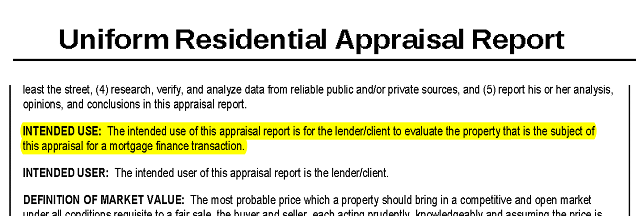
When administering an estate, the decision to use the assessed value of a property versus an appraisal depends on various factors which could collectively influence the decision-making process when determining which valuation tool to use. Those factors may include:
- Property Type: The type of property involved (residential, commercial, agricultural, etc.) can impact the accuracy of assessed values and whether an appraisal is necessary.
- Market Fluctuations: Real estate markets can fluctuate, and the assessed value might not always reflect the current fair market value of a property.
- Property Condition: If the property’s condition significantly affects its value, an appraisal might provide a more accurate assessment, considering factors like needed repairs or renovations.
- Property Location: The location of the property and local real estate market conditions might influence the accuracy of assessed values.
- Estate Complexity: In complex estates involving multiple properties, assets, or beneficiaries, accurate property valuation is crucial, and an appraisal might be more appropriate.
- Legal Requirements: Depending on local laws and regulations, there may be specific guidelines regarding property valuation methods during estate administration.
- Tax Implications: If estate taxes or inheritance taxes are a consideration, obtaining an accurate fair market value through an appraisal could be important to ensure proper tax calculations.
- Beneficiary Interests: If beneficiaries have differing interests in the property, an appraisal might help ensure equitable distribution.
- Dispute Resolution: In cases where disputes arise among beneficiaries or with tax authorities, an appraisal can provide a defensible valuation.
- Estate Size: For larger estates, more accurate property valuations are often necessary due to higher financial stakes.
In general, using the assessed value of a property might be appropriate in situations where the estate administration process requires a quick estimation of property value, and the local property tax assessment provides a reasonable approximation. Assessments are typically conducted for tax purposes and may not always reflect the true market value of a property. If the estate is straightforward and the assessed value aligns well with the actual market value, it might save time and resources to use the assessed value.
However, there are instances when relying solely on the assessed value might not be advisable. For more accurate valuations, especially when dealing with complex estates or significant property holdings, an appraisal conducted by a Certified Appraiser can offer a more precise representation of the property’s fair market value. This is crucial when estate taxes, distribution of assets, or beneficiary interests are involved.
Knowing which path to take could have significant tax implications, as well. For example, if it has been decided that the real property contained in the estate is not being sold, it may be advantageous to have the house appraised. Especially, it the market value of the property is significantly higher than the assessed value, which would allow the estate to take advantage of the higher step up in basis.
Example: Villanova Residence, 19085
Assessed Value: $2,245,000
Market Value: $2,900,000
Ultimately, the decision between using the assessed value and obtaining an appraisal should be made based on the unique circumstances of the estate, the nature of the property, and the goals of the estate administration process. Consulting with a seasoned estate attorney can provide personalized guidance on whether to use the assessed value or opt for a certified appraisal to ensure accurate and fair property valuations within the estate.


 The homeowner was hanging her hat and the potential sale of her property on the Philadelphia public records. Geez. She was very insistent that the other appraiser had no idea what they were doing. The idea that the public records could be wrong never crossed her mind. She’d been living in a house of certain size for 10 years and no one was going to tell her different.
The homeowner was hanging her hat and the potential sale of her property on the Philadelphia public records. Geez. She was very insistent that the other appraiser had no idea what they were doing. The idea that the public records could be wrong never crossed her mind. She’d been living in a house of certain size for 10 years and no one was going to tell her different. While at an appraisal inspection in the
While at an appraisal inspection in the 


 A real estate appraisal is one of the most critical parts of the
A real estate appraisal is one of the most critical parts of the 








Latest Comments